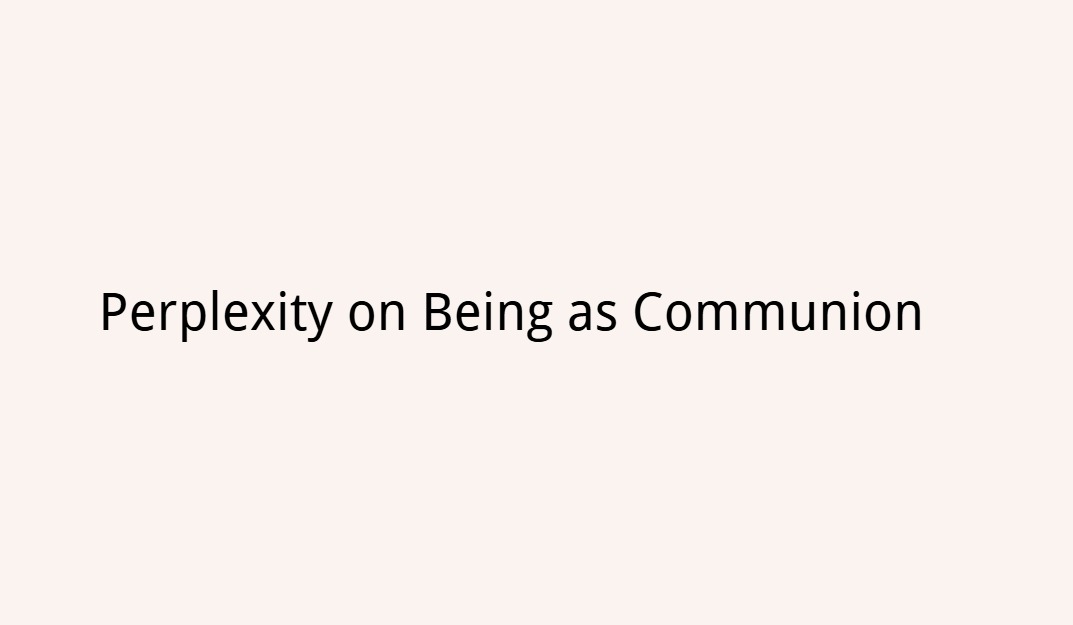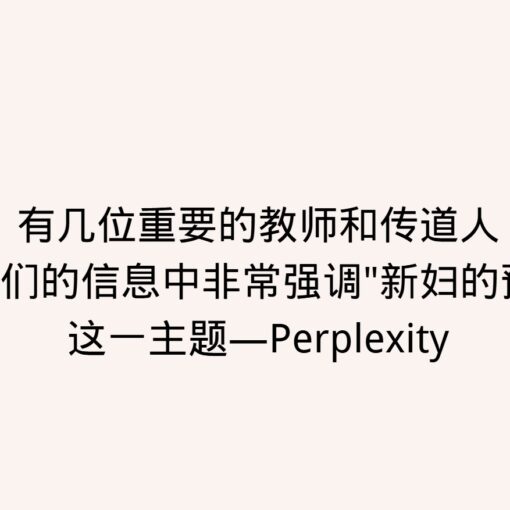Metropolitan John Zizioulas’ **Being as Communion: Studies in Personhood and the Church** has generated significant theological commentary across academic and religious circles since its publication in 1985. The work represents a groundbreaking contribution to contemporary theological thought, particularly in its articulation of relational ontology and ecclesiology.
## Core Theological Contribution
Zizioulas fundamentally challenges the **individualistic conception of personhood** that dominates Western thought[1][2]. His central thesis argues that “being is communion”—existence itself is inherently relational rather than autonomous[3]. This perspective rejects the modern notion of self-sufficient individuals existing in isolation, proposing instead that persons are constituted through their relationships and find fulfillment only through communion with God and others[1][2].
The theological foundation rests on **Trinitarian ontology**, where the Father, Son, and Holy Spirit exist not as separate individuals but as a perfect communion of persons in divine essence[2]. This Trinitarian model serves as the archetype for all existence, suggesting that authentic personhood mirrors the interpersonal communion within the Godhead[4].
## Scholarly Reception and Critiques
### Positive Assessments
Many theologians have praised Zizioulas’ work as revolutionary. **Yves Congar** regarded him as “one of the most original and profound theologians of our epoch”[5]. Scholars appreciate his fresh approach to ecclesiology, particularly his understanding of the local church as inherently ‘catholic’ and his vision of the universal Church as communion rather than superstructure[5].
The work has been described as providing “the program for the ecclesiology of the future”[5], with readers noting its profound implications for understanding **ministry, sacraments, and the Eucharist**[1]. The book’s emphasis on relationality has influenced contemporary discussions on ecological theology, with scholars applying Zizioulas’ communal ontology to address climate change and environmental crisis[6][7].
### Critical Concerns
However, the work has faced several substantive critiques:
**Philosophical Tensions**: Some scholars identify logical contradictions in Zizioulas’ framework. The tension between the Father’s “radical freedom” and the necessity of communion creates what some call an impossible synthesis—if persons exist only in communion, how can the Father be both ultimate and personal?[8]
**Reduction of Personhood**: Colin Gunton and others argue that Zizioulas reduces personhood to “mere communion,” potentially neglecting the importance of **particularity and individual identity**[9]. This critique suggests that while communion is essential, personhood requires understanding “unity-in-particularity” rather than communion alone[9].
**Accessibility Issues**: Multiple readers note the work’s **academic density and inaccessibility**[10][1]. The book assumes extensive knowledge of Eastern Orthodox ecclesiology, Patristic theology, and early church history, making it challenging for general audiences[1]. Some critics argue this difficulty is unnecessary, comparing Zizioulas unfavorably to more accessible Orthodox theologians like Alexander Schmemann[1].
## Contemporary Applications
Scholars continue to engage Zizioulas’ ideas across diverse fields:
**Ecological Theology**: His communal ontology provides frameworks for addressing environmental crisis, with theologians arguing that authentic communion must include “the full diversity of creatures”[6]. Zizioulas himself promotes “ecological asceticism” as a response to environmental challenges[7].
**Church Membership and Autonomy**: Contemporary theologians use Zizioulas’ framework to address tensions between individual autonomy and church community, suggesting his trinitarian anthropology offers solutions to modern isolation[11].
**Eschatological Implications**: Recent scholarship explores how Zizioulas’ emphasis on communion shapes understanding of time, ethics, and the future, with love rather than death providing the hermeneutical key to existence[4].
## Overall Assessment
**Being as Communion** remains a influential but challenging work that has **reshaped contemporary theological discourse**. While praised for its originality and depth, it requires significant theological background to fully appreciate. The work’s strength lies in its profound reconceptualization of personhood and church, though critics question whether its philosophical framework fully coheres and whether its vision practically addresses modern concerns about individual identity and ethical responsibility.
The book continues to generate scholarly engagement more than forty years after publication, indicating its enduring significance for understanding personhood, community, and divine-human relationships in theological thought.
Sources
[1] Being as Communion: Studies in Personhood and the Church https://www.goodreads.com/
[2] Read Free Being As Communion Studies In Personhood And The Church John D Zizioulas https://cs.grinnell.edu/
[3] Being As Communion Chapter Summary | John D. Zizioulas https://www.bookey.app/book/
[4] Eschatological Hermeneutics in the Thought of John Zizioulas, Metropolitan of Pergamon https://omegalpha.zizioulas.
[5] Being as Communion: Studies in Personhood and the Church (John … https://community.logos.com/
[6] Creaturely Communal Ontology in Practice: John Zizioulas in Dialogue with Ritual Theory https://www.mdpi.com/2077-
[7] “The Ecological Bishop: John Zizioulas’ Theology of Creation” https://utppublishing.com/doi/
[8] Being as Communion (John Zizioulas) – The Puritan Board https://puritanboard.com/
[9] Personhood as Particularity: John Zizioulas, Colin Gunton, and the Trinitarian Theology of Personhood https://brill.com/view/
[10] Anyone read ‘Being as Communion’ by Met. Zizioulas? – Reddit https://www.reddit.com/r/
[11] Autonomy and Church Membership: Resolving Jean-Jacques Rousseau’s Dilemma through John Zizioulas’s Ecclesiology https://brill.com/view/
[12] John ZIZIOULAS, Being as communion. Studies in Personhood and the Church, Ed. Darton, Logman & Todd, London 2003, 269 pp., 14 x 22, ISBN 0-232-52531-5. El Ser eclesial, ed. Sígueme, Salamanca 2003, 285 pp., 14 x 21, ISBN 84-301-1493-9. https://revistas.unav.edu/
[13] Being as Communion. Studies in Personhood and the Church . By John D. Zizioulas. New York, St Vladimir’s Seminary Press and London, Darton, Longman and Todd, 1985. Pp. 269. £9·95. https://www.cambridge.org/
[14] John D. Zizioulas, Being as Communion. Studies in Personhood and the Church. Crestwood, N.Y., St. Vladimir’s Seminary Press, 1985. 21½ × 14,270 p.,$ 12,95. https://brill.com/view/
[15] [Review of: J Zizioulas (2006) Communion and Otherness; A Papanikolaou (2006) Being with God; D.H. Knight (2007) The Theology of John Zizioulas. Personhood and Church] https://www.semanticscholar.
[16] Holy love and divine aseity in the theology of John Zizioulas https://www.cambridge.org/
[17] Product Reviews: Being As Communion 0881410292 https://www.christianbook.com/
[18] Read Online Being As Communion Studies In Personhood And The Church John D Zizioulas https://cs.grinnell.edu/
[19] Being as Communion – митрополит Иоанн Зизиулас https://azbyka.ru/otechnik/
[20] Being as Communion. Studies in Personhood and the Church. By John D. Zizioulas. New York, St Vladimir’s Seminary Press and London, Darton, Longman and Todd, 1985. Pp. 269. £9·95. | Scottish Journal of Theology | Cambridge Core https://www.cambridge.org/
[21] On the Scriptural Sense of “Fellowship” or “Communion” (κoινωνία) https://zenodo.org/record/
[22] Renewing the Narrative of the Age to Come: The Kingdom of God in NT Wright and John Zizioulas https://www.mdpi.com/2077-
[23] The Theology of the Holy Eucharist and the Doctrine of Transubstantiation https://noyam.org/?download_
[24] Participation in Christ’s body and his blood during celebration of Holy Communion as illuminated by the meaningful lenses of cognition and recognition https://hts.org.za/index.php/
[25] Rethinking Eucharistic Communion: A Theology of Harmony—A Study of the Lima Document https://www.mdpi.com/2077-
[26] Living in communion: visible unity and the Porvoo Common Statement https://journals.sagepub.com/
[27] Liturgy as space for anticipation https://hts.org.za/index.php/
[28] Ta splanchna: a theopaschitic approach to a hermeneutics of God’s praxis. From zombie categories to passion categories in theory formation for a practical theology of the intestines https://hts.org.za/index.php/
[29] The Everyday Power of Liturgy: On the Significance of the Transcendental for a Phenomenology of Liturgy https://www.mdpi.com/2077-
[30] Why worship? Revisiting a fundamental liturgical question https://hts.org.za/index.php/
[31] Being as Communion | John D. Zizioulas – Stephen Barkley https://stephenbarkley.com/
[32] Beyond “Being as Communion” – Ad Fontes Journal https://adfontesjournal.com/
[33] Being as Communion: Studies in Personhood and the Church https://www.logos.com/product/
[34] Being as Communion – SVS Press & Bookstore https://svspress.com/being-as-
[35] Part 1 — Review of Being As Communion | 40 Bicycles https://40bikes.wordpress.com/
[36] Communion and Otherness: Further Studies in Personhood and the Church|Paperback https://www.barnesandnoble.
[37] Being as Communion Quotes by John D. Zizioulas – Goodreads https://www.goodreads.com/
[38] Being as Communion. Chapter One, part one – A vow of conversation https://avowofconversation.
[39] Being As Communion: Studies in Personhood and the Church, by John D. Zizioulas, Darton, Longman & Todd, London 1985. pp. 269. £9.95. | New Blackfriars | Cambridge Core https://www.cambridge.org/
[40] Product Reviews: Being As Communion 0881410292 https://www.christianbook.com/




